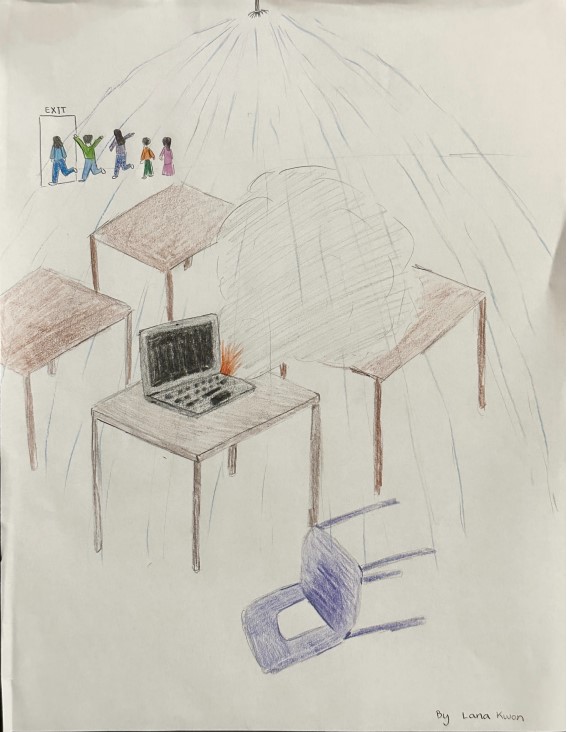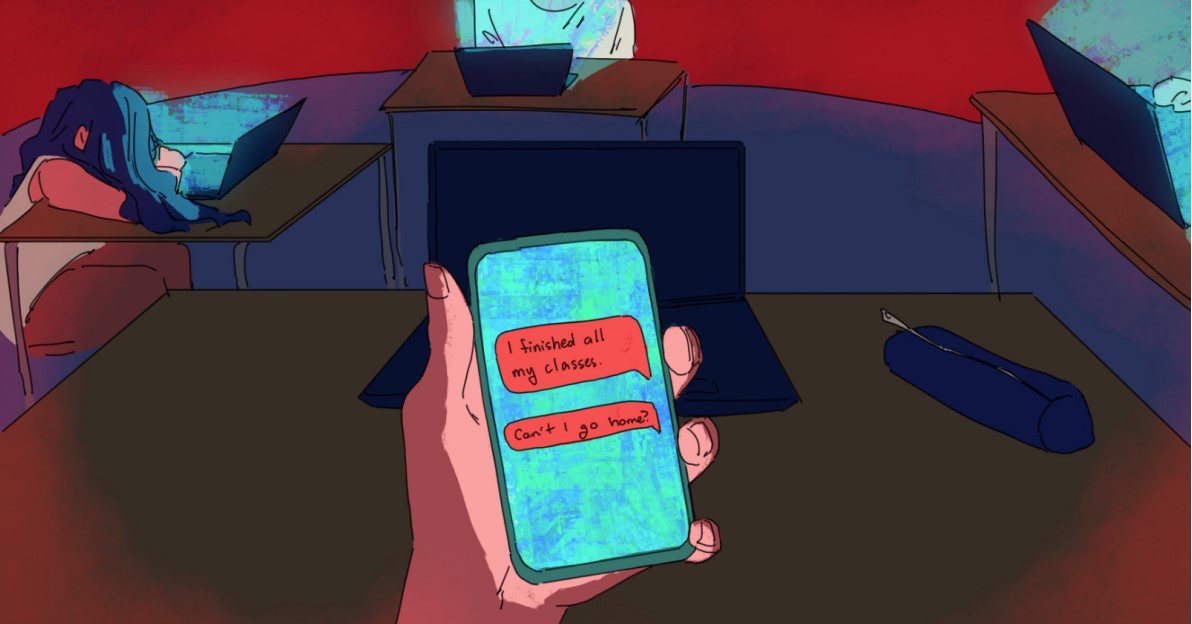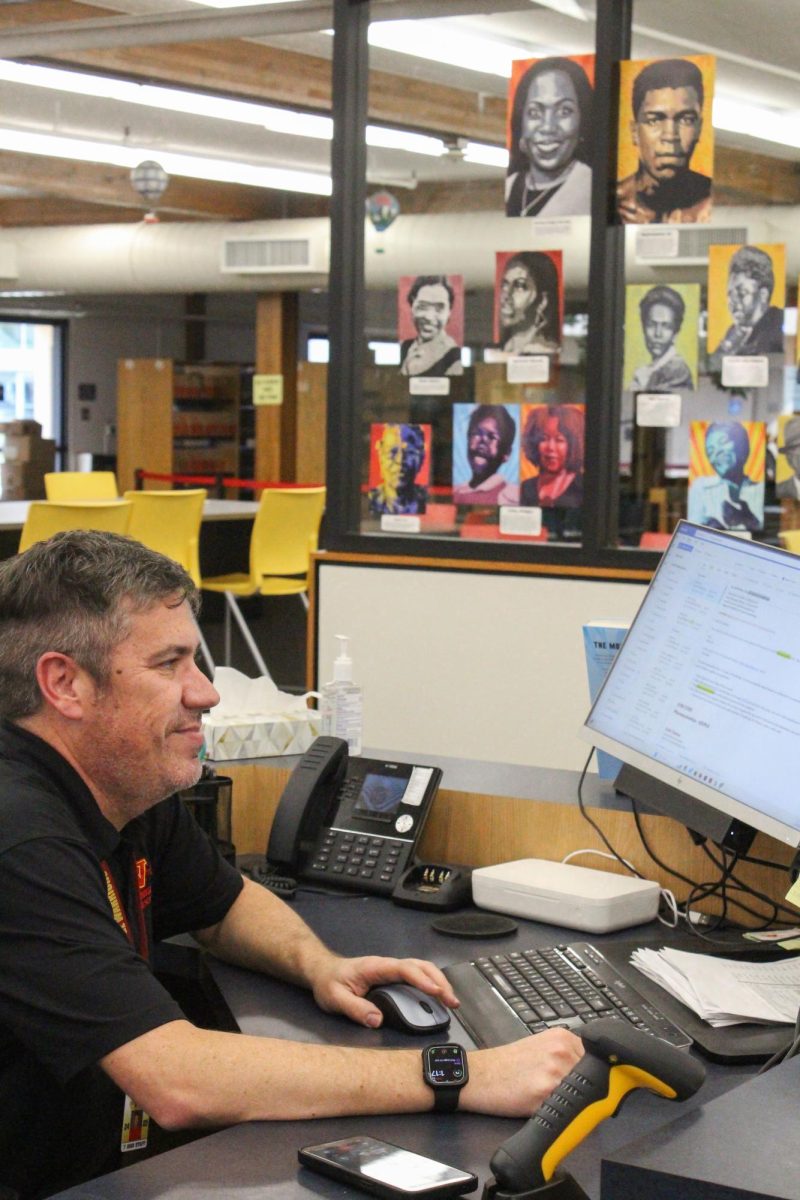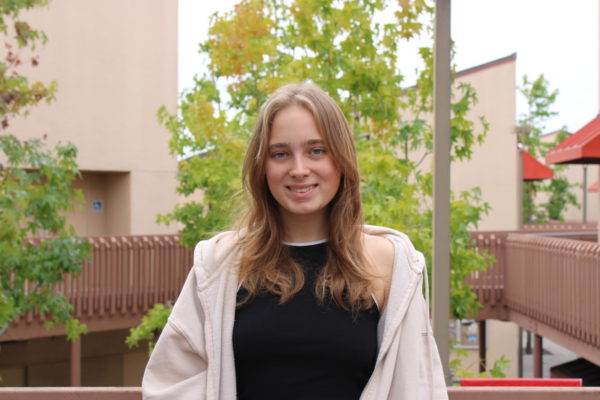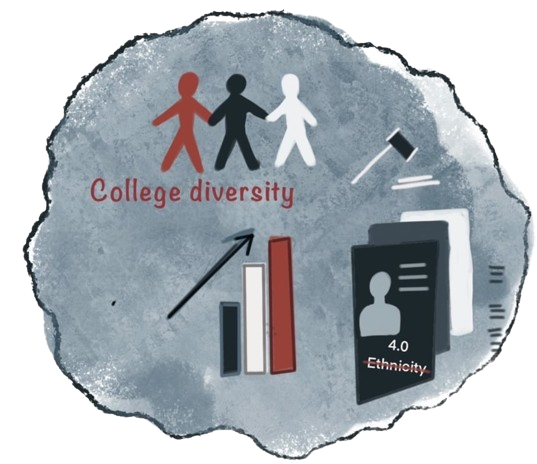
In modern society, Americans tend to view different political situations from the outside looking in. Individuals feel obligated to pick a side and take on an “us versus them” mentality.
Affirmative action is a prime example of this controversy. In regards to college admissions, the recent repeal has sparked controversy across all communities.
We have seen this topic heating debates in the media and polarizing Republican and Democratic supporters across the political spectrum.
However, the voices of the students most affected by affirmative action continue to remain underrepresented.
Instead of politicizing the policy’s repeal, we must shine a brighter light on students themselves.
Understanding how affirmative action impacts past, present and future college applicants emphasizes the importance of humanizing affirmative action.
Recent graduates of Woodbridge High, although not influenced by the new ruling, have a more extensive view into college applications as they have recently gone through the process.
According to a Post-Schar School poll, “six in ten Americans support a ban on the consideration of race in college admissions…but an equally robust majority endorses programs to boost racial diversity on campuses.”
Therefore, people should be focusing on the actual communities affected by the ruling.
“Schools like Princeton used to be all white men just a couple decades ago, so it’s essential to increase diversity,” Woodbridge High graduate and now Princeton University freshman Arman Nemati said.
However, students have different beliefs on affirmative action.
Woodbridge High graduate and now Grand Canyon University (GCU) freshman Jacob Steinhouser said he does not think race should be a factor in college applications.
There must be more effort into creating new programs that will diversify campuses. However, students must be given a voice to share their own views, including the class of 2024.
The removal of affirmative action brings upon many unanswered questions regarding what will happen to current and future graduating classes.
When speaking about the removal of affirmative action, women, minorities and the working class are worried about what the future holds.
It is important to consider the opinions of our own current seniors as they will be the first ever class to experience such change.
“Affirmative action might affect my college applications because I am a woman going into STEM, which is a male-dominated field,” senior Sophia Goffard said.
According to the U.S. Equal Employment Opportunity Commission, this field is surrounded by a total of 70.71% males and only 29.29% females.
In a society that has different fields dominated by a certain community, the minority class has a hard time having their voices be heard.
Senior Tori Zebko believes that her chances at admission approval have lowered.
“I believe that there’s going to be an even harder time for minorities to gain higher education,” Zebko said.
According to ABC News, 53% of Americans believe decisions should be made based on what is morally right, as opposed to political decisions behind them.
Additionally, it’s critical to consider the wider implications of the court’s ruling.
The removal of race-conscious admissions has historically led to a decline in minority enrollment.
According to Urban Institute, “The passage of California’s Proposition 209 in 1996 resulted in a 12 percent decline in underrepresented groups across the whole University of California (UC) system.”
However, as the political climate in America grows ever more volatile, the only way we will ever reach a solution is if we can learn to cooperate.
“Not everything in the world is black and white,” junior Kai Tanaka said. “There’s a lot of gray areas, and it’s important that those gray areas are at least acknowledged.”
Compromise, even as simple as sitting down and having an insightful conversation with someone in your community about the effects affirmative action has on them is becoming essential in order to find common ground and truly work out a solution.
“Not everyone can always be happy,” Tanaka said. “But it’s important that everyone is at least acknowledged, and we can work from there.”
The impact of affirmative action extends beyond politics and race. Input should be taken from the entire student body of our nation, transcending the underrepresented Supreme Court that decides on our behalf.
To achieve progress, we must communicate and compromise. We can begin by hosting meaningful conversations with those who agree and disagree with us and work to break the “us versus them” mentality.
College applicants should not feel discouraged to submit personal statements discussing race, as our diversity fosters unique and individualistic experiences that unequivocally reveal a student’s character.
To find a solution, we must recenter the conversation to where its impact is the greatest.




